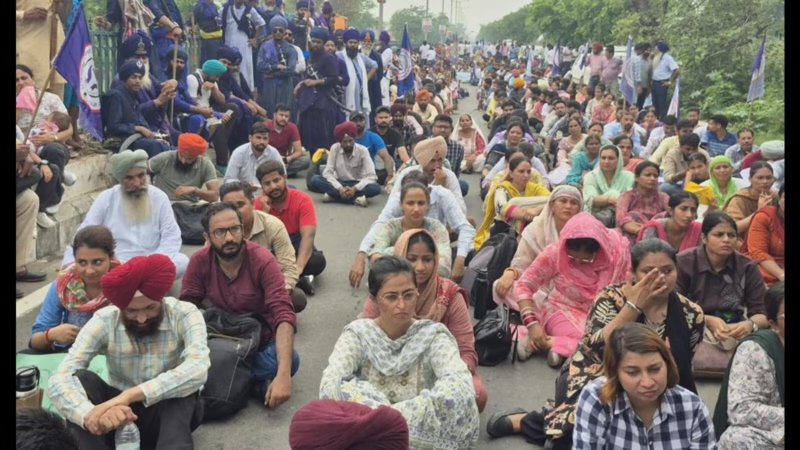 Punjab’s education sector is facing a major crisis — one that is not just about vacant posts or administrative lapses, but about shattered hopes, broken commitments, and a systemic attack on higher education. At the heart of this crisis lies the unresolved plight of 1,158 professors and librarians, whose recruitment process has been caught in bureaucratic limbo and political silence for months, if not years.
Punjab’s education sector is facing a major crisis — one that is not just about vacant posts or administrative lapses, but about shattered hopes, broken commitments, and a systemic attack on higher education. At the heart of this crisis lies the unresolved plight of 1,158 professors and librarians, whose recruitment process has been caught in bureaucratic limbo and political silence for months, if not years.
The story began with a long-overdue initiative to fill vacant teaching positions across government colleges in Punjab. These vacancies — 1158 in total — included both teaching (Assistant Professors) and non-teaching academic posts such as Librarians. The posts were advertised by the Punjab Government’s Department of Higher Education, and thousands of qualified candidates, many of whom had waited over a decade for such an opportunity, applied. Written tests were held, interviews conducted, and selection lists were either finalized or close to finalization. Hope surged among aspirants who had invested years in academics, research, and qualifying competitive exams like UGC-NET and PhDs.
However, what followed was a complete breakdown of governance and commitment. Instead of appointment letters, the selected candidates were greeted with silence, delays, and legal confusion. The recruitment process was abruptly halted, citing court cases, procedural issues, and “technical” shortcomings. Many allege that this delay is deliberate — an excuse to derail the process due to internal power politics or vested interests that want contractual hiring to continue, where salaries are low and job security is nil.
The crisis is not just about jobs. It is about Punjab’s collapsing higher education system. Government colleges across the state are running with dangerously low faculty strength. Entire departments have no permanent professors. Students suffer, academic standards are falling, and yet the government chooses not to act. Ironically, many of these vacant positions are being temporarily filled by guest faculty, paid meager wages, undermining both the dignity of educators and the quality of education.
For the 1,158 aspirants, this delay has meant not just financial hardship but psychological trauma. Many of them had left private jobs, research fellowships, or moved back from other states in the hope of serving Punjab’s students. Their careers hang in uncertainty while the government continues to promise on paper but delivers nothing on the ground. Despite repeated protests, letters, and appeals to the Chief Minister and Education Minister, no concrete assurance or timeline has been provided.
This episode is a reflection of a larger failure of the system — where education is not seen as a priority, and educated youth are being punished for their qualifications. It is also a betrayal of the trust that these candidates placed in the government, especially when recruitment was promised as part of election manifestos and policy announcements.
The silence of political leadership and the lack of public outrage also point to a troubling truth: teachers and librarians, the backbone of a knowledge society, are being treated as dispensable. In a state already battling brain drain, unemployment, and declining educational infrastructure, such apathy is criminal.
If this issue is not resolved immediately, Punjab will lose some of its best and brightest educators to other states, countries, or professions altogether. The demand is simple: complete the recruitment process and appoint the selected 1158 candidates without further delay. Justice delayed is not only justice denied — in this case, it is education denied to thousands of students across Punjab.
The ball is in the government’s court. Will it finally act, or will it allow Punjab’s education system to drift further into crisis?